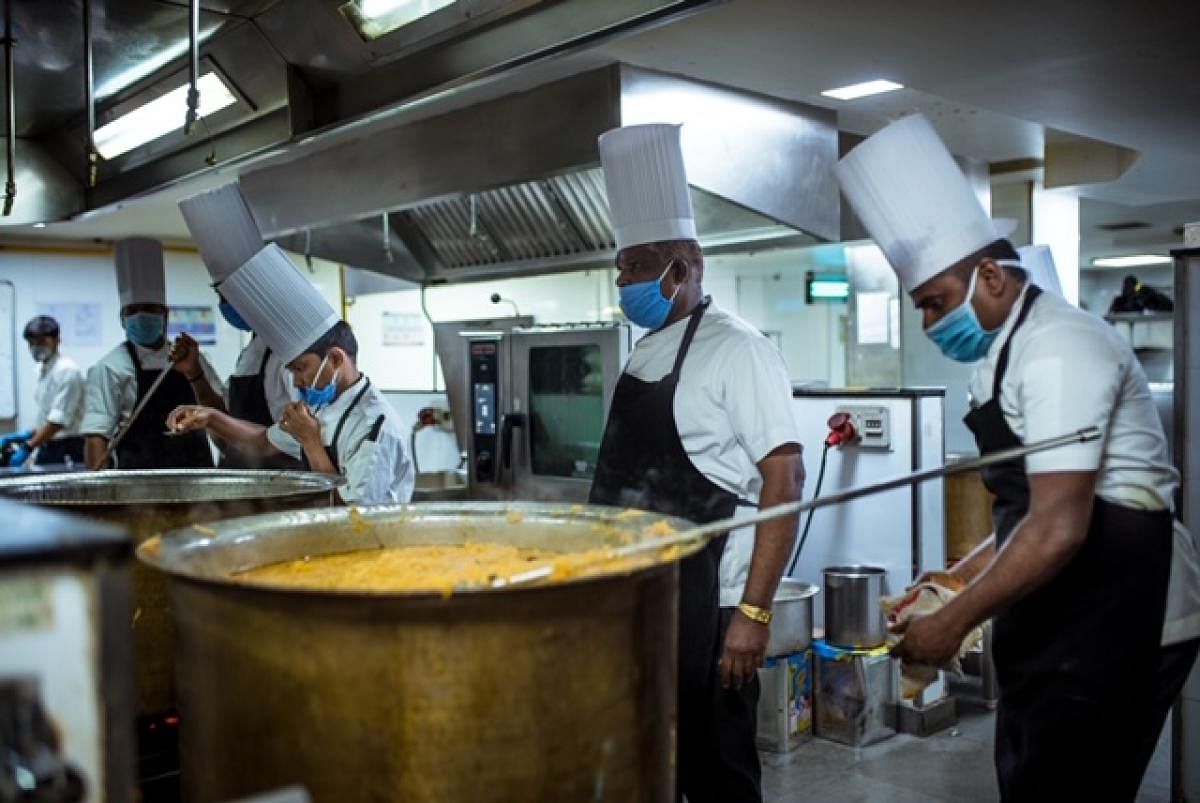
Several voluntary groups in Bengaluru are supplying essentials to daily-wagers and their families.
The Atria Foundation’s ‘Serve Bengaluru’ initiative is one such. Operating out of 12 kitchens, the foundation provides 1.5 lakh meals a day.
“For these workers, hunger is a greater concern than the virus,” says Kaushik Raju, director of Atria Groups, which runs a hotel and Atria Institute of Technology.
The distribution is undertaken by partners who maintain social distance and avoid large groups, he told Metrolife. “We are developing an application to bring everyone involved to one platform,” he says. The app will centrally map areas to show people the kitchens closest to them.
Sarjapur volunteers
Author and entrepreneur Sudipto Das has enlisted the help of his college batchmates and residents in his apartment complex to raise funds for migrant workers in the Sarjapur area. “Since these communities have their own cooking arrangements, we decided it would be better if we provided them with rations rather than cooked meals,” he explains. To prevent wastage, Sudipto says the food packets have two days’ worth of provisions for a family of four.
Initially aimed at workers living in settlements in Sarjapur, this initiative has spread across Bengaluru as well as to the states of Uttarakhand, West Bengal, Maharashtra, and Kerala.
She for Society
Doing the groundwork is vital to identifying those who are really in need, says Harshini Venkatesh, founder of She For Society. With the help of the police, the group has identified families in areas overlooked in the initial efforts undertaken by the authorities.
“It is an intensive process and there are many bodies working towards this; there might be areas that get double provisions while some families may be unable to procure essentials,” Harshini explains. In addition to providing one month’s worth of rations to workers and their families, She For Society provides rations and medical assistance to transgender individuals as well.
FICCI Flo
The Bengaluru chapter of FICCI Flo has been providing similar assistance to women across the city. The organisation focuses on empowering women to lead a more dignified life, founder Shruti Mittal tells Metrolife. At present, the organisation has been focusing on providing food packets to families in need and providing women with sanitary napkins.
“In times like these, migrant workers do not have money, and so we provide the women with one year’s worth of sanitary napkins,” Shruti explains. Flo members are also volunteering at the Atria Foundation’s food distribution programme.
The organisation, she adds, is working towards providing sanitisers, masks, and PPE (personal protective equipment) to the city police. “Sanitation tunnels for heavily congested areas, post-lockdown, are also in the works,” Shruti says.
New challenges
A common challenge that these groups face is the collation of on-ground data. This data, Sudipto and Harshini say, is vital to identify pockets that need the most assistance. Data collection has an added health risk now, says Harshini.
Volunteers are physically exhausted, and fear adds to the tension. “We are trying to find more volunteers so as to give the current batch a break,” says Kaushik.
Shruti feels there is a need to think ahead: “While the BBMP and the government have been doing a good job, we need to start asking questions about life post-lockdown. We need a clear roadmap, especially for migrant workers and their communities,” she adds.
“We depend on migrant workers for multiple aspects of our lives, the least we can do is take responsibility for them at a time like this,” Sudipto says.